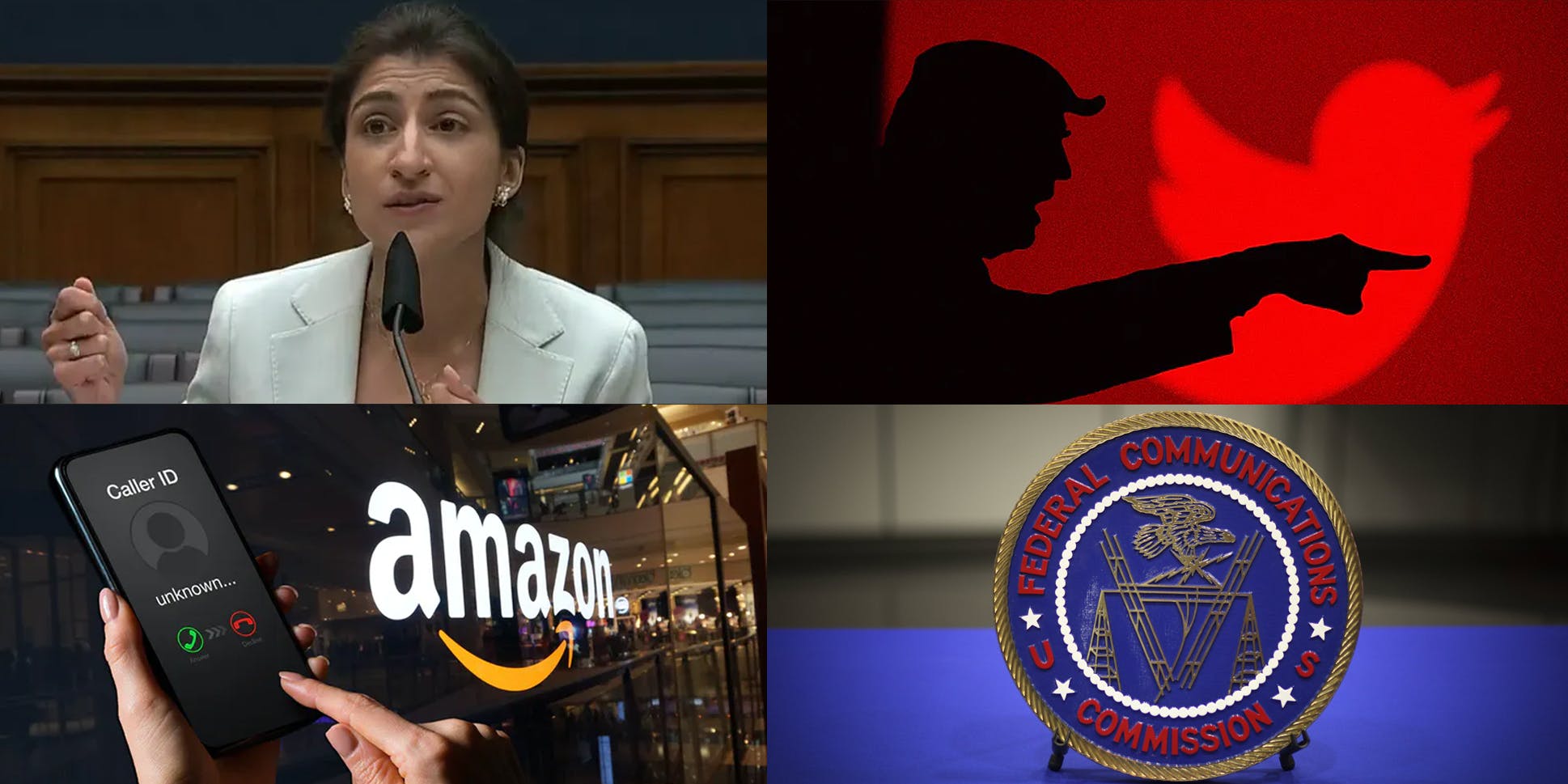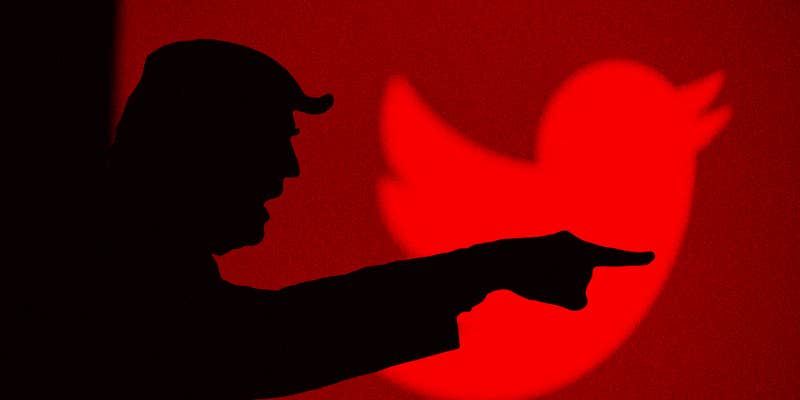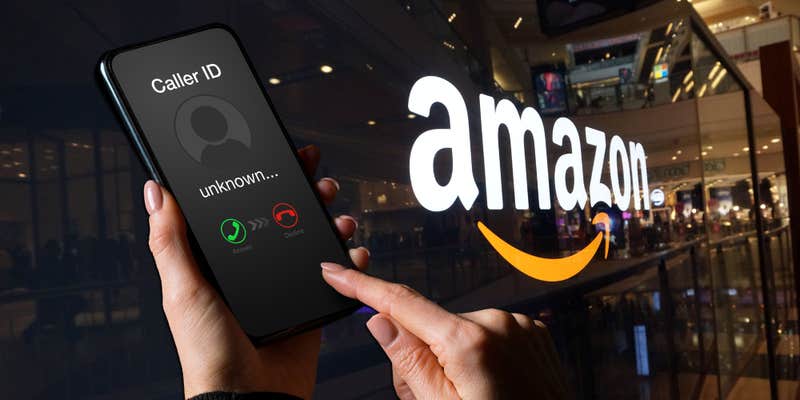
Welcome to the Tuesday edition of Internet Insider, where we dissect tech and politics unfolding online. Today:
- Analysis: Big telecom finally gets a day in the spotlight
- Twitter admits its algorithm favors right-wing content but doesn’t know why
- Scammers impersonating Amazon stole $27 million from victims in a year
Sign up to receive the Daily Dot’s Internet Insider newsletter for urgent news from the frontline of online.

BREAK THE INTERNET
Big telecom FINALLY gets a day in the spotlight in Washington D.C.
Analysis
Not a day goes by in Washington, D.C. where we don’t hear something about “big tech.” Over the last few months, there’s been the Facebook whistleblower’s testimony, antitrust bills, and the Federal Trade Commission (FTC) filing an amended monopoly complaint against Facebook.
But late last week, big telecom finally got some attention. There's a clear need for a focus on big tech and the reforms that could come with that. But issues about telecommunications companies are equally as important—and not to mention popular among Americans. The digital divide has been an issue in the U.S. for years, net neutrality rules have massive bipartisan support, and the pandemic has showed just how important broadband connectivity and affordability is.
Despite that, all of these issues seem to have taken a backseat in President Joe Biden’s administration. The president still has yet to fill out the Federal Communications Commission (FCC), and his continued delay makes it increasingly likely that the agency will fall into a Republican majority in a few months. While that wouldn't mean Republicans control the agency, it further pushes back any kind of Democratic agenda.
The delay has already set back a number of issues the FCC could have tackled, perhaps most importantly a restoration of net neutrality rules and, with them, giving the agency the authority over internet service providers (ISPs) that was rescinded when the FCC repealed the 2015 Open Internet Order under then-chairman Ajit Pai.
But for a moment last week, big telecom was under a microscope. The FTC unveiled a report that detailed the “staggering” amount of data that six large ISPs collect on their users and how that data is ultimately used.
The results of the study were stark. The FTC found that AT&T, Verizon, Comcast, Charter, Google Fiber, and T-Mobile amassed “large pools” of customer data, and used that data in “unexpected ways that could harm consumers.”
The FTC noted that the ISPs can be “at least as privacy-intrusive as large advertising platforms” and that they collect data across product lines, used web browsing data to target ads, and used “sensitive characteristics” to target ads, and shared real-time location data with third parties.
“In our study, we learned that some ISPs … collect data from their customers beyond what is necessary to provide ISP services and use that additional data to enhance their ability to advertise to consumers,” Andrea Arias, who presented the FTC’s report, said. “For example, several ISPs in our study collect information about consumers’ apps usage history to use in connection with advertising.”
During the meeting, FTC Chair Lina Khan and FTC Commissioner Rebecca Kelly Slaughter both noted that the FCC needs to have its authority over broadband restored.
Slaughter noted that in the absence of FCC authority, ISPs were in a “race to the bottom” to monetize user data. Similarly, both Sen. Ed Markey (D-Mass.) and Sen. Ron Wyden (D-Ore.) said the report highlighted the need for the FCC to once again have authority over the internet providers.
Maybe the spark of attention on big telecom will compel Biden to stop dragging his feet with the FCC so it can begin trying to regain the authority so many people say it desperately needs.
Note: Following the scheduling of this newsletter, reports suggested Biden was likely to nominate people to the FCC on Tuesday.
—Andrew Wyrich, deputy tech editor

CHECK OUT THE LATEST FROM DOTRECS
Home projectors are a game-changer for home entertainment. Here are your first steps
The technology powering home projectors has seen exponential growth in the past few years. Today you can create a personal big-screen movie theater in the comfort of your own home for under $1,000. From the Super Bowl to the 4K MCU movies, your nights deserve the best.

BIG TECH
Twitter admits its algorithm favors right-wing content but doesn’t know why
Twitter stated recently that its algorithm appears to favor right-wing content but admitted that it doesn’t know why.
In a blog post, the company outlined a recent study in which it analyzed tweets from elected officials in seven countries, including the U.S., U.K., Canada, France, Germany, Spain, and Japan, as well as content from media outlets.
Specifically, Twitter compared the “Home” timeline, which uses an algorithm to show tweets to the site’s users, to the chronological timeline.
The analysis ultimately found that right-wing politicians had their content algorithmically amplified more often than their left-wing colleagues in every country but Germany.
The study also discovered that right-wing media outlets such as Fox News received more amplification than left-wing sources like BuzzFeed.
Twitter concluded by stating that it wasn’t entirely sure why its algorithm appeared to favor content from the political right over the left but is attempting to “determine what, if any, changes are required to reduce adverse impacts by our Home timeline algorithm.”
— By Mikael Thalen, staff writer

SCAMS
Scammers impersonating Amazon stole $27 million from victims in a year
The Federal Trade Commission (FTC) said scammers posing as people from Amazon stole $27 million from people over a roughly one-year period.
The agency said in a recent blog post that from July 2020 to June 2021, Amazon impersonators made up one in three reports to them about scammers impersonating businesses. During that one-year period, around 96,000 people reported being targeted and nearly 6,000 people said they lost money. Around 273,000 people reported business impersonators to the FTC during that time frame.
Overall, the losses for Amazon-specific impersonators were more than $27 million, with the median loss being around $1,000.
The 96,000 reports about Amazon impersonators dwarfed other companies. The second most frequently impersonated company by scammers was Apple, with 16,000 reports made to the FTC.
The FTC said the most common scam was people getting an unexpected message from someone claiming to be from Amazon about an unauthorized purchase or suspicious activity.
—A.W.
The post Tech newsletter: Big Telecom finally gets the spotlight appeared first on The Daily Dot.
0 Commentaires